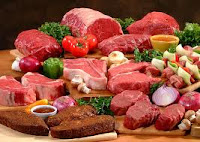MINERALS WE NEED IN OUR DIETS
Electrolytes are salts and minerals that can conduct electrical impulses in the body. They control the fluid balance in the body and are important in muscle contraction, the generation of energy, so preventing fatigue, and almost all major biochemical reactions in the body. These include sodium chloride, sodium bicarbonate, potassium, calcium, magnesium, phosphate, sulphate and others.
Free radicals are compounds that have an unpaired electron which makes them extremely reactive and are linked to the causes of cancer, arthritis, Alzheimer’s disease and diabetes. They damage the cells and cause oxidation damage. They are also associated with the aging process and can age the skin, for example. The foods we eat can combat free radicals, and so help fight the ageing process by helping to make the skin smoother, preventing the wrinkles we get as we get older and rejuvenating the skin. Antioxidants protect us from the ravages of free radicals. These are substances which have the ability to convert free radicals into more stable substances, limiting the damage they do. So we need foods which have antioxidant properties such as kiora water, morels, leeks, chilgoza etc.
Astringent properties: - if a foodstuff has astringent properties and is used for these in traditional or natural medicine, it causes contraction of the tissues and can control bleeding, so stopping the flow of blood from wounds; myrrh has astringent properties as well as antiseptic ones, for example.
Calcium: - this is essential for healthy bones, teeth, nails and the normal functioning of the heart, nerves and muscles. It is found in dairy products, green vegetables such as broccoli, and in almonds, sesame seeds etc. It helps to prevent osteoporosis and perhaps colon cancer and is used to treat PMT/PMS, colon polyps, and may help to lower blood pressure.
Magnesium: - this is essential in our diets and is required for enzyme activity in the body. It is important for neurochemical transmissions and muscular excitability. It is found in nuts, seeds, grains and greens. It is used in medicine to help reduce hearing loss which was produced because of noise; heart disease, painful menstruation, symptoms of PMT/PMS, migraines and high blood pressure. It is important for healthy bones and tooth formation; lack of it may affect the heart adversely and skeletal muscle.
Manganese: - This is found in grains, nuts and is used to treat painful menstruation and osteoporosis as well as to alleviate deficiencies associated with seizures and diabetes.
Phosphate: - is an organic compound which is extremely important for healthy cells, the storing and use of energy and it is a transmitter of genetic information within cells as well as from one cell to another. It is continually being excreted through faeces and urine so needs to be replaced.
Phosphorous: - is found in bones and teeth and is essential for the health of the cell membranes. It helps convert food into energy and is found in nuts such as pistachios, and walnuts, legumes, cereals, grains and dairy products.
Potassium: - this mineral is found in whole grains, meat, legumes, and some fruit and vegetables, such as ash gourd, mushrooms, pumpkin seeds and figs. It is important for the normal functioning of the nerves and muscles, kidneys and heart. It acts as an electrolyte and functions in nerve signal transmissions, muscle contraction, blood pressure regulation and maintenance of the body’s pH balance. Lack of it may result in moodiness, diarrhoea, nausea and weakness.
Selenium: - a trace mineral with antioxidant properties in its selenoproteins which help to prevent cell damage from free radicals. It helps to regulate the functions of the thyroid gland and plays a role in the healthy function of the immune system. It is found in nuts, meat, bread, mushrooms and salmon. It is thought to help women during and after the menopause.
Zinc: - a mineral found in eggs, meat, nuts, seeds, whole grains and brewer’s yeast. It is used medically to prevent infection and treat upper body respiratory problems. It can also help treat oral herpes, acne, anorexia nervosa, macular degeneration (weak eyesight and cataracts) male infertility and erectile dysfunctions and sickle cell anaemia. It is toxic if taken in high doses.








Thank you for sharing your thoughts and for inspiring us. Keep it up and continue on what your doing. Visit my site too.
ReplyDeletetriciajoy.com
www.triciajoy.com